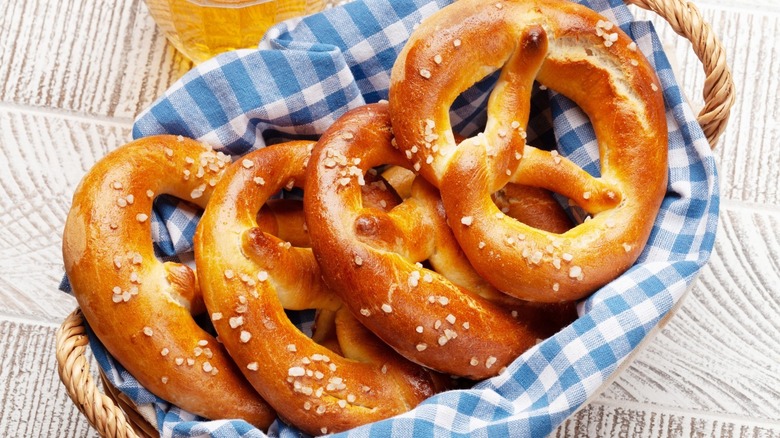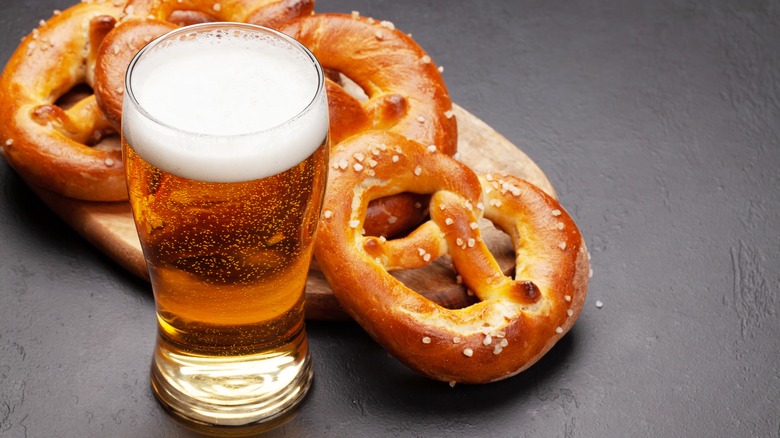Why We Eat Pretzels On Easter
There's a handful of foods we associate with Easter. Ham, eggs, candy, pretzels, — wait — what was that about pretzels? You know all about Auntie Anne's and Wetzel's Pretzels, but perhaps you've never thought of those salty and soft hunks of dough to be in the same group as colorful eggs and rabbit-shaped chocolate bars. The history of pretzels isn't found just in the shopping mall food court or in plastic bowls at your local bar.
According to CBS News, the Pennsylvania Dutch, who are the German immigrants that settled within Pennsylvania, are responsible for bringing the pretzel to the United States during the eighteenth century. In fact, the first hard pretzel is credited to have been originally created by accident in a Pennsylvania Dutch bakery. Yet, the Germans weren't the first inventors of the snack, as Heinz History Center credits Italian monks as the alleged creators of what would soon be the modern-day pretzel. Although the idea that monks invented the pretzel is based on legend, it's true the pretzel has a deep history relating to religious practices across Europe, going as far back as medieval-era monasteries. Even the pretzel's shape is connected to the Church.
Pretzels are shaped like arms in prayer
Although you may not see it, the distinct shape of the pretzel is supposed to represent people in prayer — or at least, that was how people prayed back in the medieval days. History explains that monks back in the Middle Ages baked pretzels to give as rewards to young students who did well in their lessons, with the dough in the shape of someone in prayer; arms crossed with hands-on opposite shoulders.
Some sources even claim that the three holes in the pretzel represent the Holy Trinity: Father, Son, and Holy Spirit (via Food & Wine). It's believed that these ancient pretzels were known either as "bracellae' — a Latin term for "little arms" that Germans later called "bretzel" or "pretiolas," which meant "little rewards." From "bretzel" to "pretiola," it wouldn't be too hard to see where the term "pretzel" came from.
Aside from their religious shape, pretzels also were a popular Lenten snack. As Catholics avoided meat and dairy during the Lenten season, pretzels might have been seen as a filling and spiritual snack that could keep practitioners of the faith satisfied both physically and spiritually.
Although your best recipes for the perfect Easter dinner may not include pretzels, you may enjoy them as an after-dinner snack.

